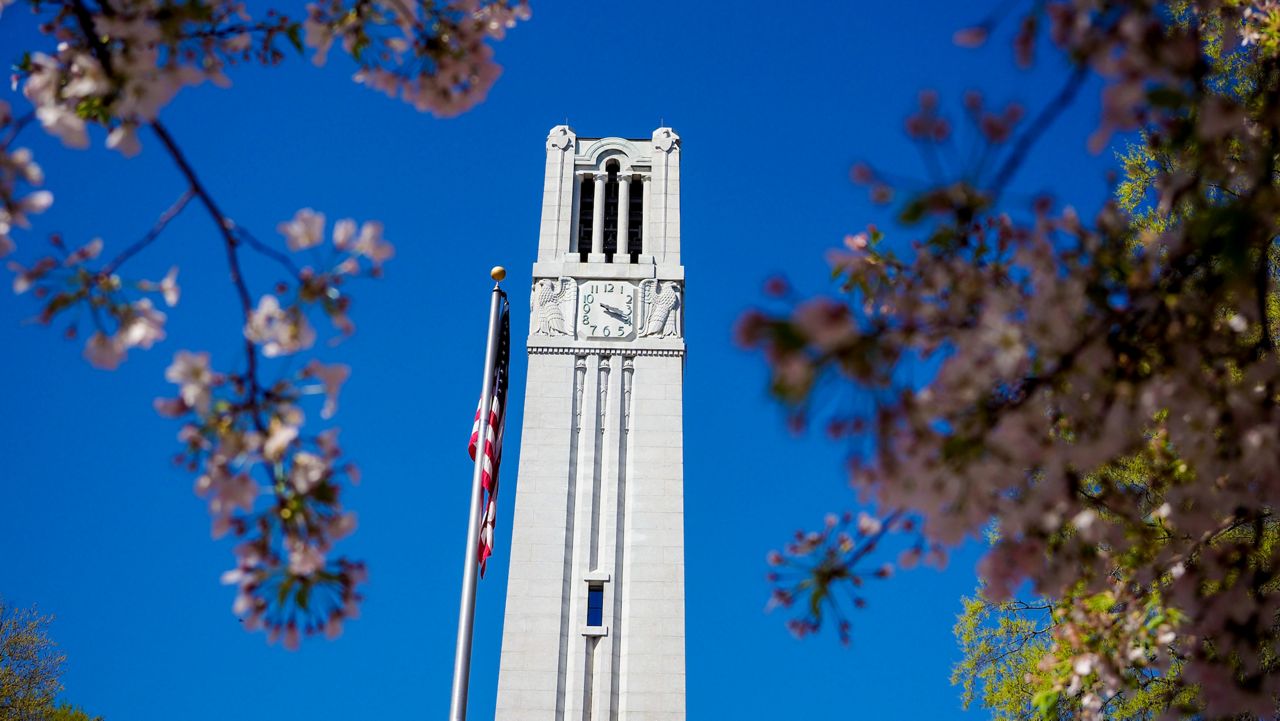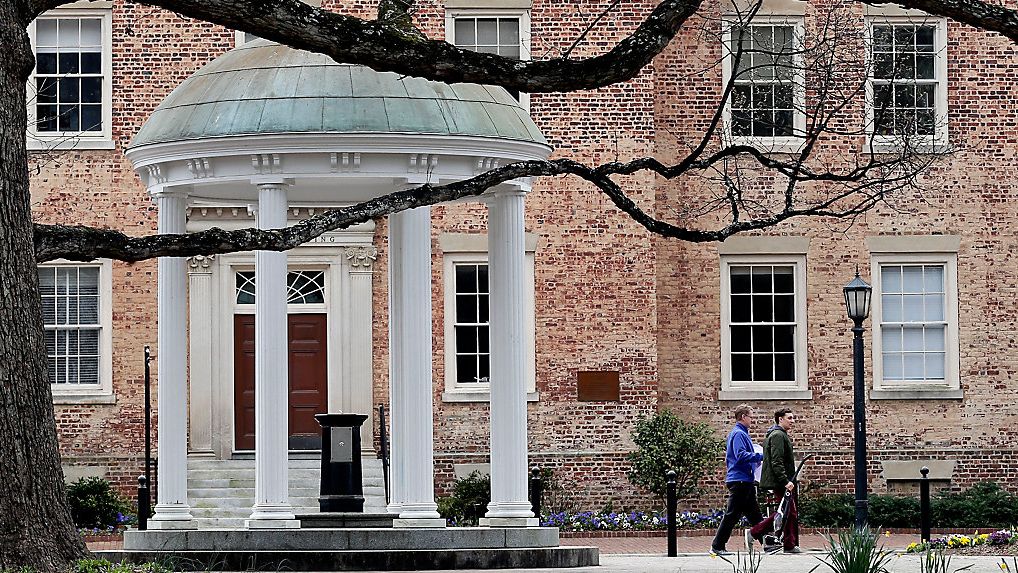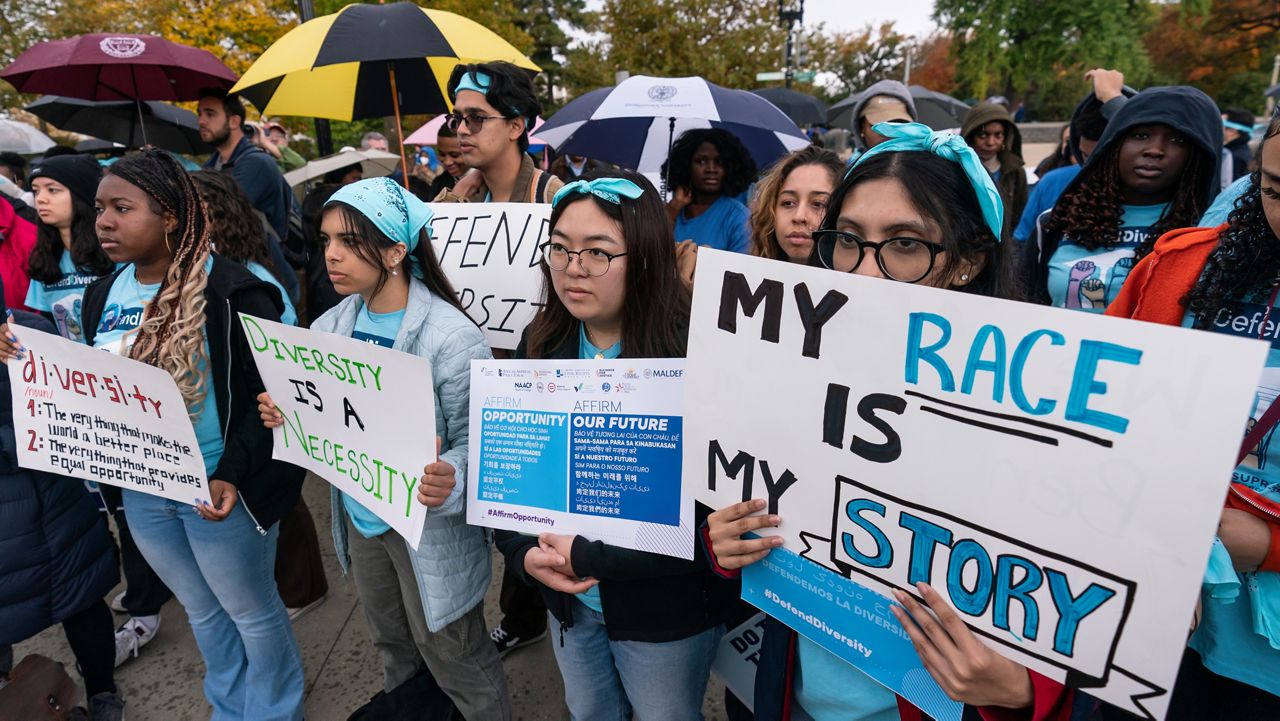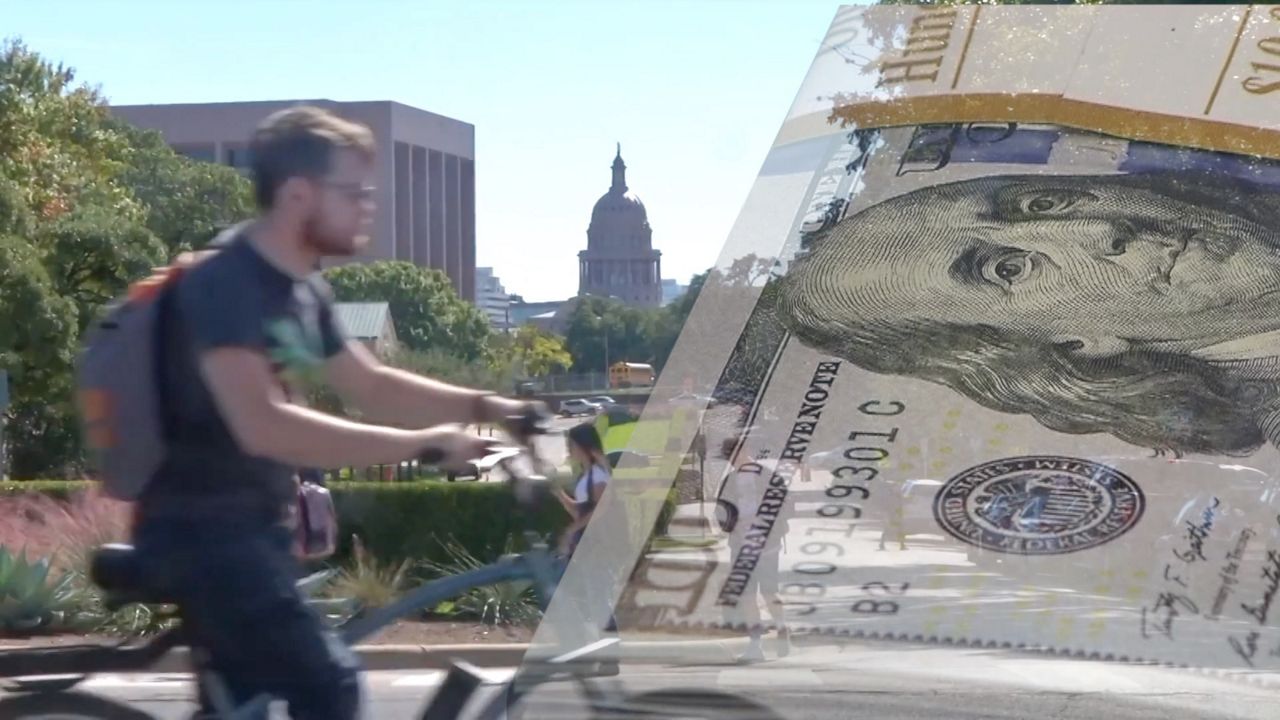Colleges around the country and here in North Carolina are reporting some international students’ visas are being revoked unexpectedly in what appears to be a new level of government scrutiny.
Visas can be canceled for a number of reasons, but college leaders say the government has been quietly terminating students’ legal residency status with little notice to students or schools. That marks a shift from past practice and leaves students vulnerable to detention and deportation.
The Trump administration has targeted students who had been involved with pro-Palestinian activism or speech, with a few high-profile detentions of students including Mahmoud Khalil, a green card holder who was a leader of protests at Columbia University.
But more schools are seeing visas stripped from students with no known connection to protests. In some cases, past infractions such as traffic violations have been cited. Some colleges say the reasons remain unclear and they are seeking answers.
“What you’re seeing happening with international students is really a piece of the much greater scrutiny that the Trump administration is bringing to bear on immigrants of all different categories,” said Michelle Mittelstadt, director of public affairs at the Migration Policy Institute.
Many college officials and students have only found out about the changes when they have checked a federal database and seen changes to an individual’s immigration status.
In North Carolina, 18 students from four universities have received visa revocation notices.
The University of North Carolina at Chapel Hill said student visas for six of its international students have been terminated by the U.S. government. UNC Charlotte said six students and scholars had their status terminated. N.C. State said two students had their visas revoked, and Duke University listed two current graduate students and one alumnus among those to get termination notices. Appalachian State confirmed Wednesday that one student's visa was revoked.
Spectrum News 1 reached out to each institution and received the following statements.
UNC-Chapel Hill
“UNC-Chapel Hill’s International Student and Scholars Services (ISSS) is aware that, at this time, the Student Exchange and Visitor Program records of six of our international students have been terminated by the U.S. government,” a spokesperson for the university said in a statement.
“ISSS staff communicate regularly with international students and scholars, as well as their departments, advisors and supervisors, about regulatory changes and their immigration status. ISSS is available to advise, answer questions and provide resources to all university-sponsored international students and scholars.”
The university said ISSS is part of UNC Global Affairs and “serves as the central office and sole authority for processing UNC-sponsored immigration benefits and immigration advising, ensuring compliance with federal regulations.”
UNC Charlotte
"As of April 9, UNC Charlotte has been informed that SEVIS (Student and Exchange Visitor Information System) records for six international students have been terminated by the U.S. government. UNC Charlotte has communicated with international students and scholars that we are actively monitoring SEVIS records and we are committed to providing accurate information and appropriate referrals to impacted individuals in accordance with federal law. Impacted students are encouraged to consult an immigration attorney and their consulate immediately if they receive notification of a change to their SEVIS record."
N.C. State
“Late in the day on March 25, 2025, the university learned that the Student Exchange and Visitor Program records of two international students had been terminated by the U.S. government," the university said.
"N.C. State did not initiate these terminations and was not directly notified of these changes. Our Office of International Services (OIS) contacted the students to advise them about the potential consequences of these changes and provide resources for them. OIS staff also contacted government officials to confirm the terminations. In consultation with their home country embassies and private immigration attorneys, both students made the decision to depart the United States."
"We are deeply concerned about the lack of communication from federal agencies and the impact of these actions on our international students. We are committed to assisting these two students in any way we can, including completing the semester from abroad," N.C. State said in a statement. "Our NC State international students, faculty and staff remain critically important members of our community and we deeply value the talent, ideas and insight that they bring to our campus.”
Duke University
“During the first week of April 2025, two current Duke graduate students and an alumnus on Optional Practical Training (OPT) received emails from the U.S. State Department informing them that their F-1 visas had been revoked, and that Immigration & Customs Enforcement (ICE) had been notified of the revocations. The emails did not cite reasons for the revocations, stating only that “additional information became available after your visa was issued,” Duke said in a statement.
"The students’ F-1 visa records in Homeland Security’s Student & Exchange Visitor Information System (SEVIS) were then terminated by the U.S. government. Duke was not involved in either the visa revocations or the subsequent terminations of the visa records, and was not directly notified about either of these actions. Duke Visa Services (DVS) met with the students to advise them about the consequences of these actions and to provide resources to them. As a result of the termination of the visa status, the students are not legally able to continue their studies at Duke or to work in the U.S. Arrangements are being made for the current students to allow program activities to continue from the students’ home country if necessary. The students are consulting with immigration attorneys about next steps," the university said.
"Going forward, Duke Visa Services will review the SEVIS system daily. DVS will notify any student whose status has changed, and we are available to consult with students on an individual basis. If you are contacted by the U.S. Department of State about your visa or SEVIS status, contact Duke Visa Services immediately," Duke said. "Our international students, faculty, staff, and researchers are valued and essential members of the Duke community and contribute in innumerable ways to making Duke the world-class institution we know and love.”
Appalachian State
"App State supports our international students by providing information and resources, and any students with questions or concerns are encouraged to reach out to the Office of International Programs."
How do student visas work?
Students in other countries must meet a series of requirements to obtain a student visa, usually an F-1. After gaining admission to a school in the U.S., students go through an application and interview process at a U.S. embassy or consulate abroad.
Students on an F-1 visa must show they have enough financial support for their course of study in the U.S. They have to remain in good standing with their academic program and are generally limited in their ability to work off-campus during their academic program.
Entry visas are managed by the State Department. Once they’re in the U.S., international students’ legal status is overseen by the Student and Exchange Visitor Program under the Department of Homeland Security. The department tracks student visa information through online SEVIS records. Students can't access or check their SEVIS records.
Leaders at many colleges learned the legal status of some of their international students had been terminated when they checked a database managed by Homeland Security. In the past, college officials say, visas typically were revoked after schools updated the government when students fell out of status.
After losing legal residency, students are told to leave the country
Historically, students who had their visas revoked were allowed to keep their legal residency status and complete their studies.
The lack of a valid visa only limited their ability to leave the U.S. and return, something they could reapply for with the State Department. But if a student has lost residency status, they must leave immediately or risk detention by immigration authorities.
Higher education leaders worry the arrests and revocations could have a chilling effect on international education in the United States.
The lack of clarity of what is leading to revocations can create a sense of fear among students, said Sarah Spreitzer, vice president of government relations at the American Council on Education.
“The very public actions that are being taken by ICE and the Department of Homeland Security around some of these students, where they are removing these students from their homes or from their streets, that’s not usually done unless there is a security issue when a student visa is revoked,” she said. “The threat of this very quick removal is something that’s new.”
Colleges are trying to reassure students
In messages to their campuses, colleges have said they are asking the federal government for answers on what led to the terminations. Others have re-emphasized travel precautions to students, recommending they carry their passport and other immigration documents with them.









